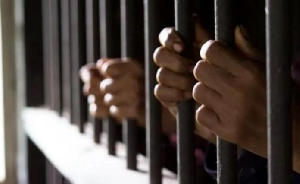Accra, Jan.1 GNA - Mr Rex Owusu-Ansah, Chairman of the Board of Directors of the Ghana News Agency, on Thursday said contrary to public criticisms about the performance of Parliaments of the Fourth Republic, they have not been over partisan in the discharge of their duties. Mr Owusu-Ansah, a former Clerk of Parliament said: "Indeed what the public misconstrue is the effects of genuine heated debates. Parliaments are talking shops, MPs must talk, debate and persuade one another." He was contributing to a symposium on: "Parliament in the Fourth Republic: Lessons Learnt" at the 55th Annual New Year School underway at University of Ghana, Legon in Accra.
The School is being organised by the Institute of Adult Education of the University of Ghana under the theme: " A Decade of Constitutional Rule in Ghana, Critical Issues Facing The Nation."
Mr Owusu-Ansah elaborated on the history of the Fourth Republic, the administrative structure of Parliament and consolidation of the gains of the House.
He said MPs have no problem being divided over issues, explaining: "The people with the problems are constituents who shy away from debates and dialogue."
Mr Owusu-Ansah expressed dissatisfaction with gender disparity in Parliament, saying the present Chamber of 200 members had only 19 female members.
"There is perhaps the need to work out carefully crafted mechanisms by political parties to entice more females into Parliament". Mr Owusu-Ansah drew the attention of participants to the weaknesses of the Transitional Provisions in the 1992 Constitution and asked: "Who remains President or Vice-President after the automatic dissolution of the presidency until a new one is sworn in?"
He called for capacity building for MPs and the Leadership of the House through training and skills development and the provision of a working research facility.
Mr Malik Alhassan Yakubu, MP for Yendi, dwelt on the strengths and weaknesses of Parliament in his presentation.
He said MPs, who were re-elected brought substantial experience that informed debates at the floor of the House.
He called for a national discussion on the need for the country to have either independent or hybrid parliamentary systems. "If we need to have a more independent Parliament, it will mean amending the Constitution to do away with the appointment of Ministers from Parliament.
"Of course this will call for heavy investment in Parliament in terms of facilities to make the work of MPs more meaningful and attractive".
General News of Thursday, 1 January 2004
Source: GNA












